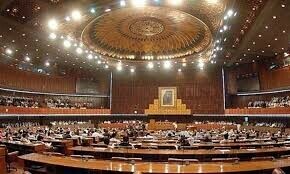ISLAMABAD, Nov 27: The ministry of environment is working on national drinking water policy draft to explore ways to ensure availability of potable water to all people across the country.
Provincial governments and other stakeholders are being consulted for this purpose and the draft will be finalised within two months and submitted to the federal cabinet for approval in January.
Under the policy, a separate water and sanitation directorate will be established which will handle issues related to cleanliness and provision of clean drinking water.
The ministry is also considering a proposal for the establishment of a ministerial committee to ensure smooth working in the water, sanitation and environment sectors.
The proposal has been sent to the prime minister for approval, said Federal Minister for Environment Hameedullah Jan Afridi while talking to Unicef Deputy Executive Director Helde Frafjord Johnson.
Additional Secretary Environment Imtiaz Inayat Elahi and officials of Unicef were also present on the occasion.
The minister said inter-provincial meeting would soon be called to finalise the draft National Drinking Water Policy. He said 2009 had been declared as the National Year of Environment and initiatives of the International Year of Sanitation (IYS) 2008 would be carried further during the celebrations of the Year of Environment.
He said the United Nations Environment Programme (UNEP) would be establishing a permanent resident office in Pakistan to ensure better coordination with the environment ministry and other relevant agencies working for the cause of environment.
A comprehensive awareness media campaign will be part of the celebrations of 2009 as the Year of Environment. He said the ministry was targeting to plant 10 million saplings in 2009 to break the world record of eight million saplings in a single day by India.
The minister appreciated the Unicef support in the area of water and sanitation, especially for their assistance in the formulation of national drinking water and sanitation policies, provincial and regional sanitation strategies, water quality standards and in the formulation of country plan for International Year of Sanitation-2008.
He also lauded Unicef assistance for enhancing coverage of water and sanitation in schools and communities.
The minister informed the visiting Unicef delegation that Pakistan was far ahead in achieving Millennium Development Target in the area of sanitation compared to other South Asian countries.
He said the environment ministry was closely working with the health ministry under the umbrella of International Year of Sanitation.
Considering the strong linkages of polio with sanitation conditions, the environment ministry plans to develop joint strategy in collaboration with the health ministry to ensure convergence of polio and sanitation programmes. He also appreciated the role of Unicef in organisation of South Asian Conference on Sanitation (SACOSAN-III) which has led to build strong partnership of regional countries and raising the profile of sanitation at regional level. The minister said the Pakistani government had actively participated in drafting the Delhi Declaration at the end of the SACOSAN-III. He said the role of religious leaders had been recognised in the Delhi Declaration with the efforts of Pakistan for mobilising the community and to bring a behavioural change on sanitation and water issues.
Speaking on the occasion, Unicef Deputy Executive Director Helde Frafjord Johnson said Unicef would continue to cooperate with the environment ministry to address water and sanitation issues in the country. She appreciated the close linkages of health and environment sectors for tackling the sanitation and hygiene issues. She said the UN was interested to directly work with the people of the tribal areas so as to improve their social conditions and provide them better health facilities.















































Dear visitor, the comments section is undergoing an overhaul and will return soon.